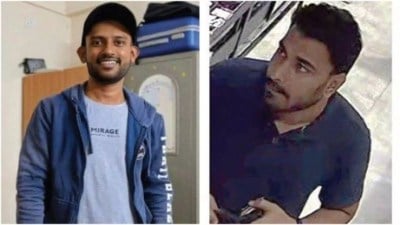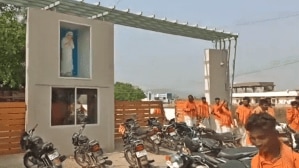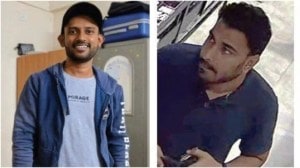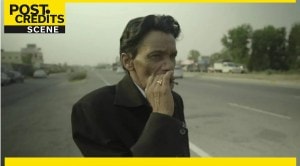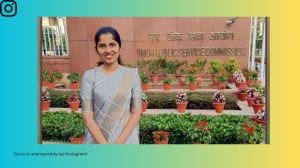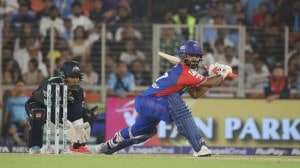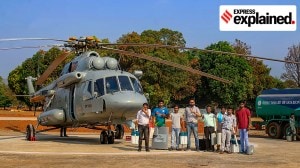- India
- International
‘They hanged Kasab. They should’ve hanged us too and ended our misery’
With the groundnut harvest season on, Jashiben earns about Rs 150 a day working on the fields. “No one owns land or a house in my family. My husband wasn’t rich, but he could take care of our basic needs... There have been several days since Ramesh’s death when we had to sleep empty stomach.”
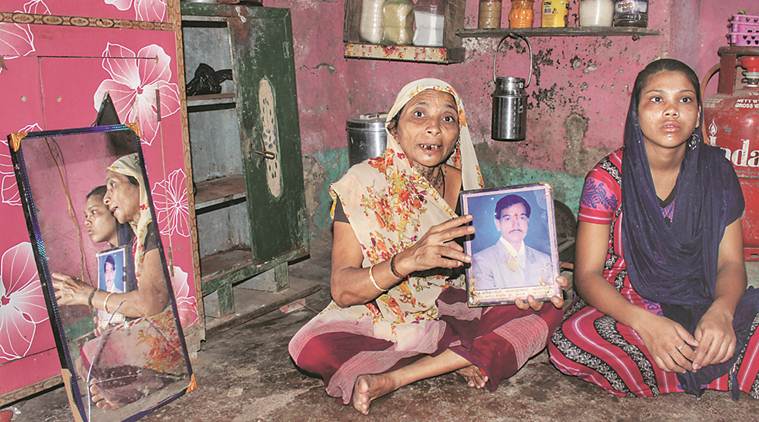 Jashiben Bambhania, widow of fisherman Rameshbhai Nagjibhai Bambhania who was on a trawler that was hijacked during the 26/11 attack, at her house. (Express photo: Javed Raja)
Jashiben Bambhania, widow of fisherman Rameshbhai Nagjibhai Bambhania who was on a trawler that was hijacked during the 26/11 attack, at her house. (Express photo: Javed Raja)
A two-kilometre stretch in Simasi village of Junagadh district is marked by a signboard of the Pradhan Mantri Gram Sadak Yojana. Less than a kilometre from the signboard, the path gives way to a kuccha stretch where a two-storey building stands. Jashiben Bambhania stays in a two-room house in the building for rent.
Jashiben’s husband Ramesh-bhai Nagjibhai Bambhania, a fisherman, was on board the trawler MV Kuber that was taken away by terrorists involved in the 26/11 attack on their way to Mumbai. All five crew members, including Bambhania, were presumed killed.
On November 8, the Gujarat government, on a directive from the Gujarat High Court, handed over the compensation amount of Rs 5 lakh to Jashiben. Jashiben was surprised when told that Tuesday marked the anniversary of the 2008 Mumbai attacks. She doesn’t keep a track but usually she has few routine TV interviews lined up every year… except this year.
“They handed me two papers and told me to keep them carefully for three years. What use is the money three years later when I need it the most right now? This is as good as not being compensated…” Jashiben’s complaint comes at the behest of the three-year lock-in period provided for the compensation deposited as fixed deposit.
“My daughter will be so old in three years, who will wait for her that long? No one will want to marry her then. Plus a girl’s wedding demands that guests be fed well else they make it the talk of the town. At various points in time, we borrowed from our extended families. That amounts close to Rs 45,000. Now they all know we have received the compensation and are expecting their money back… If anything is left after all expenses three years later, we may think of buying a plot of land that may cost a minimum of Rs 1.5 lakh. If we plan any construction, that expense will be extra,” says Jashimen.

A mother of four, Jashiben does not know how old she is. “Maybe in 40s,” she said when The Indian Express met her in October, when she complained how the Gujarat government demanded proof of her husband’s death to compensate her. The Gujarat High Court ordered on October 22 that she be compensated in 48 hours but it finally happened this month.
“The entire country knows Ramesh Nagji is dead. (Ajmal) Kasab himself confessed that they killed and threw the bodies of the four fishermen in the sea”, she told this paper then.
The time since the incident had taught her “one thing”, Jashiben adds. “No government cares or works for the poor… They hung Kasab. They should have hung us too and ended our misery… We are illiterate and poor. Where do we go and what do we do?”
Among the others onboard Kuber who got relief are family members of the late Amarsinh Solanki, the captain of the boat. His decapitated head was found on the boat. Says Jashiben, “They were compensated. They were given Rs 5 lakh and a bungalow. His son was also given a job. Now they stay in Diu.”
An agrarian area that grows mainly groundnut and cotton, Simasi is dominated by land-owning Hindu-Kolis, who are engaged in farming and fishing. Muslims in the area mostly work in the diamond business.
It was fate that saw Bambhania on MV Kuber on Nov-ember 26, 2008. “He had gone to Porbandar in August. Fishermen go to the sea only for 15 to 20 days in a season… they spend the rest of the time on land. That month his sister’s son, who was to take over the boat and fishing duties from him, could not make it to Porbandar. So Ramesh stayed on,” Jashiben says.
It was almost a month before the family got to know that Bambhania may have been among those killed in 26/11. Jashiben recalls her father-in-law come in on December 20 trembling, a vernacular newspaper in his hand.
Bambhania’s eldest child, Mahesh, then 14, still recalls that an article on Kasab’s revelations to investigating agencies named a vessel called Kuber, and put out five names, including his father’s. “My mother and uncle went to Porbandar to ask boat owner Vinod Masaniya if the news was true. He confirmed that none of the fishermen survived,” says Mahesh. “A week or so later, Masaniya came to our house and gave us some money to conduct the final rites.”
He says they carried out the rites with a ceramic doll for Bambhania’s body. The absence of a body, Jashiben says, means they too clung to hope initially. “For about two years we kept thinking that he may return. It was only after we gave up all hope that we approached the court in September 2016,” she says.
By then, it was more than seven years since Bambhania was missing. Provisions in The Indian Evidence Act allow a person missing for seven years to be presumed dead following appropriate proceedings before a court. Three other crew members from Navsari were declared dead by a district court on the ground that they had been missing for seven years and therefore can be presumed dead wherein the court issues a death certificate. Bambhania’s family was not assisted by a lawyer back then and was unaware of the legal provision.
Ahmedabad-based advocate Anand Yagnik, who represented Bambhania’s family, says, “In the chargesheet filed (against Kasab), the Mumbai Crime Branch mentioned 164 persons were killed. The count included those on MV Kuber… We have Kasab’s confession where he admits throwing four persons aboard Kuber (into the sea), though he did not name anyone specifically… There is a Customs Department report that states that Kuber left with five persons on board (that day) and provided a certificate naming them.”
With the groundnut harvest season on, Jashiben earns about Rs 150 a day working on the fields. “No one owns land or a house in my family. My husband wasn’t rich, but he could take care of our basic needs… There have been several days since Ramesh’s death when we had to sleep empty stomach.”
In Jashiben’s bare room, lined with a few aluminium utensils, some plastic bottles and a cot, is a polythene bag with clippings of local newspaper coverage of the family over the years. A sticky bottle of a multi-vitamin syrup is kept on a shelf, Jashiben’s sole defence against old age and pains.
Best of Express
Buzzing Now
Apr 18: Latest News
- 01
- 02
- 03
- 04
- 05











